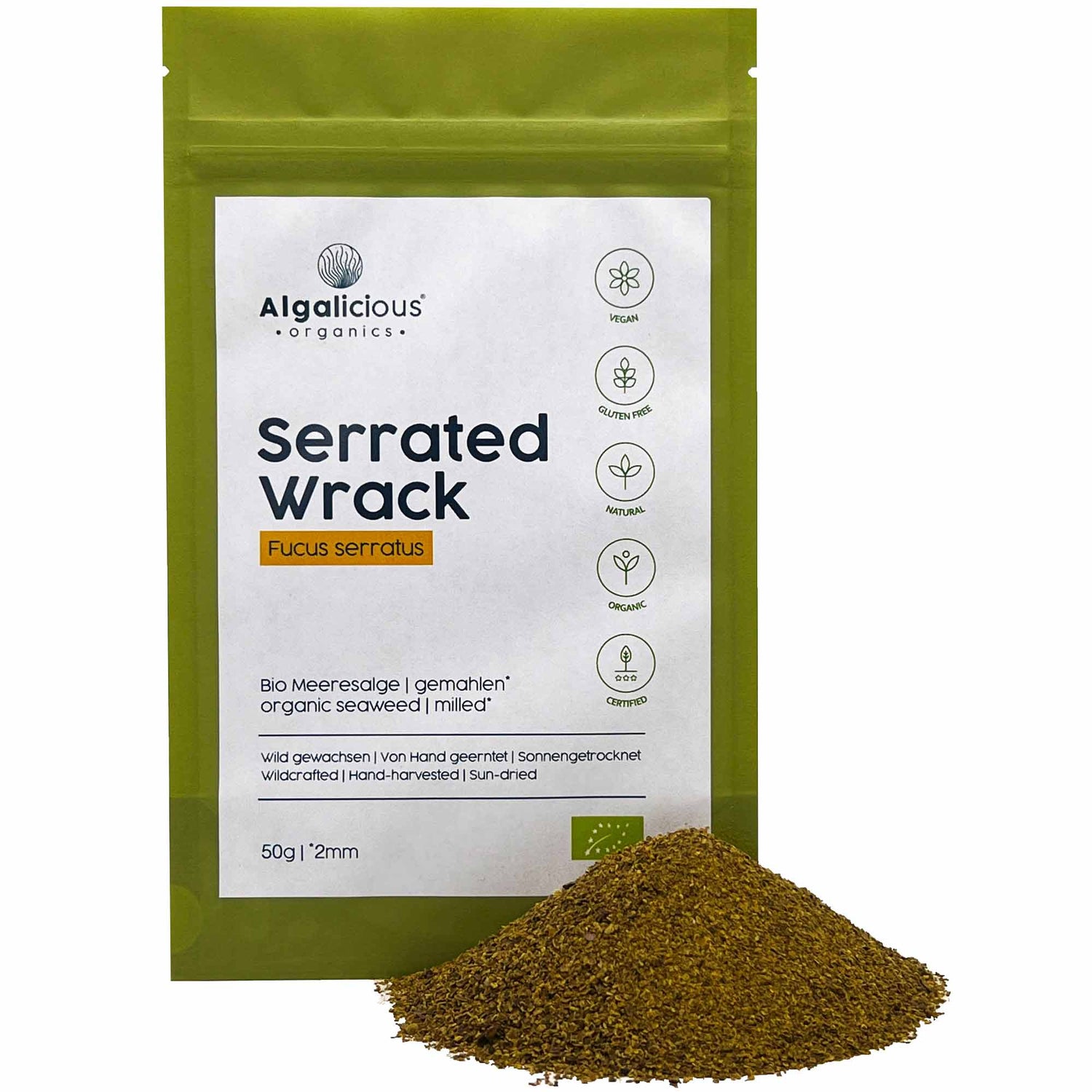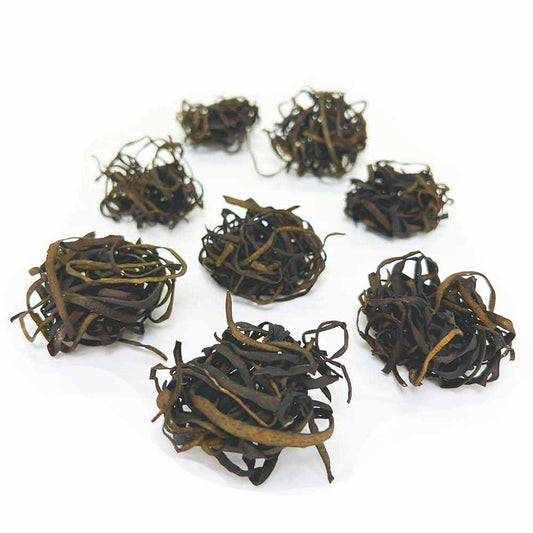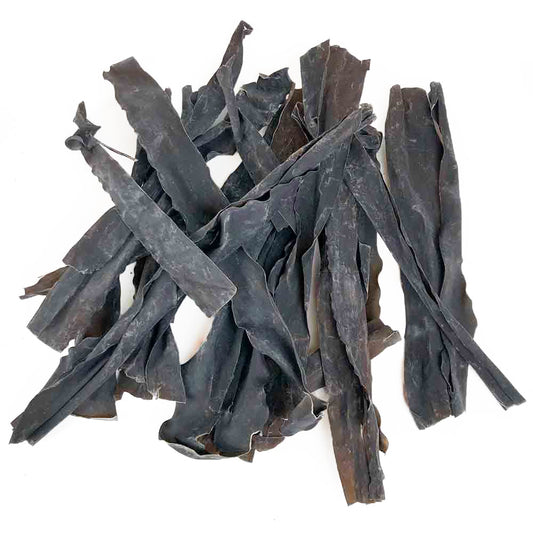
is an important source of nutrients. They provide essential minerals such as iodine, vitamins, including vitamin B12, and omega-3 fatty acids. With antioxidant properties, they protect against cell damage and support heart health. They are also a source of protein and contain fiber that aids digestion. Their natural source of iodine is essential for the thyroid gland. So seaweed enriches the diet and supports overall health.
-
Organic Sea Spaghetti (Himanthalia elongata) - Whole leaves
Regular price €14,99 EURRegular priceUnit price €299,80 per kg -
Organic Atlantic Kelp Kombu (Laminaria digitata) Whole Leaf
Regular price €12,99 EURRegular priceUnit price €259,80 per kg

Seaweed
as edible seaweeds tend to be called, are environmentally friendly in many ways and offer numerous benefits for our planet. One of the most striking features of seaweed is its ability to actively absorb CO2. This makes them important allies in the fight against climate change, as they help reduce atmospheric CO2 levels, which are responsible for the greenhouse effect.
Furthermore, seaweeds do not require fertile soil or fresh water to grow, minimising the strain on our already limited resources. This contrasts with many traditional farming practices that rely on both fertile soil and significant amounts of fresh water. Growing seaweed can therefore help take pressure off these resources while producing valuable food and raw materials.
Finally, seaweed can also be used as a source of renewable energy. The technology to convert algal biomass into biofuels is constantly evolving, and these fuels could provide an environmentally friendly alternative to traditional fossil fuels.
Overall, seaweeds play a crucial role in the environment by not only helping to reduce CO2 levels in the atmosphere, but also by helping to conserve our resources, clean up our waters and provide renewable energy.



